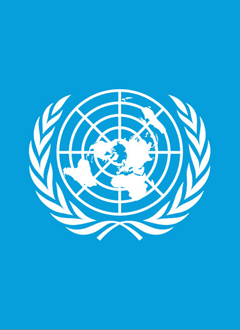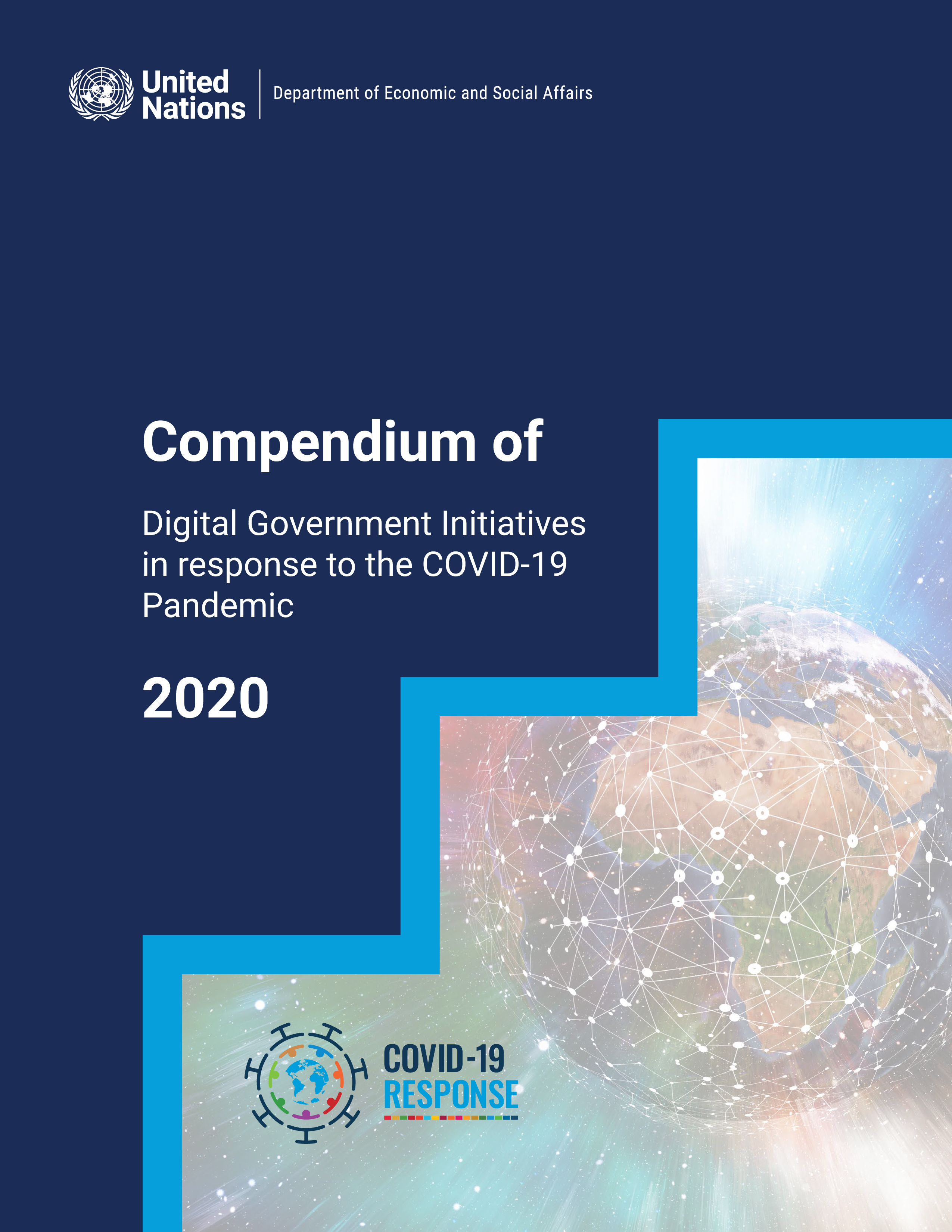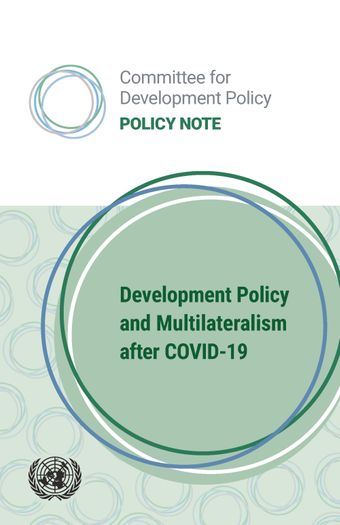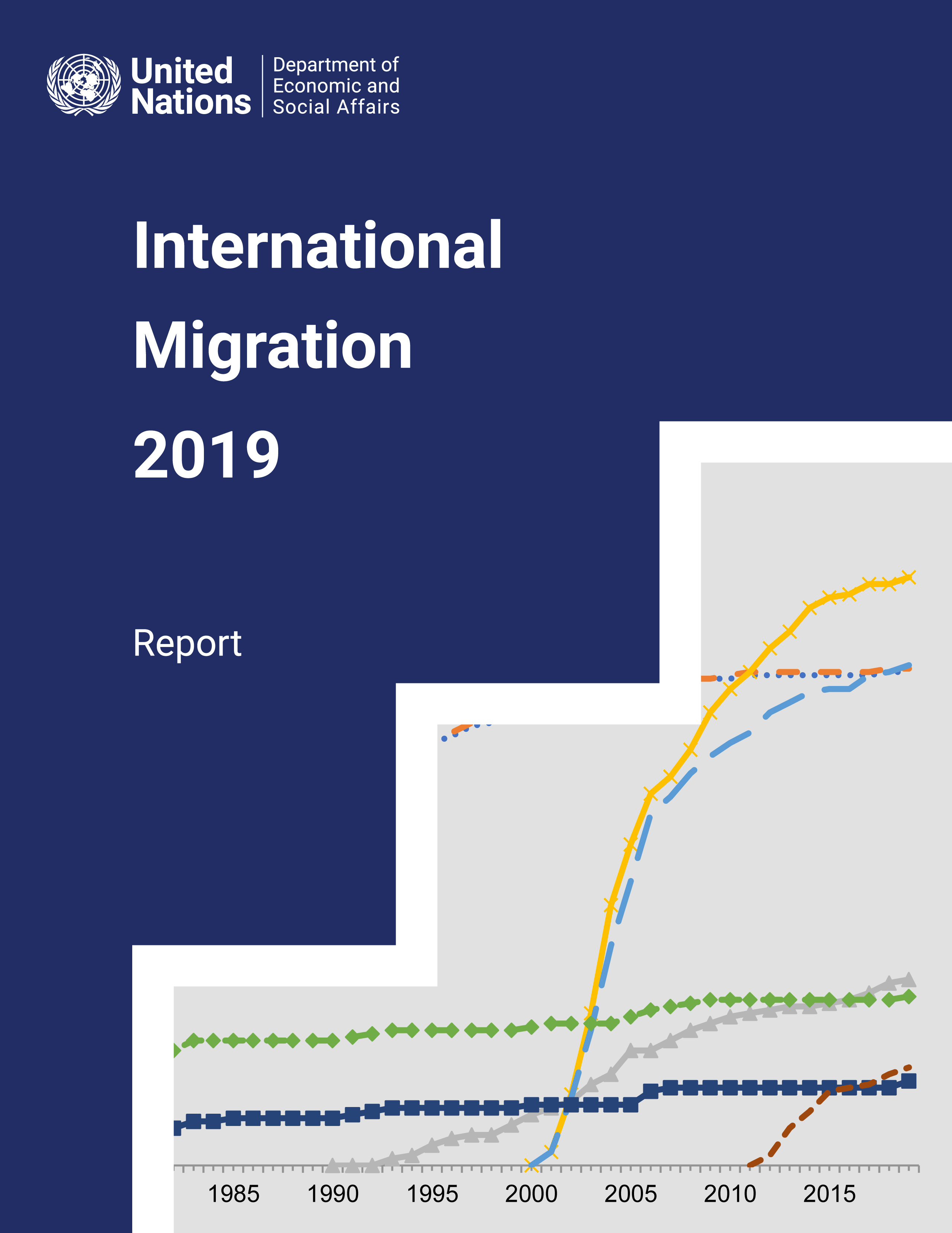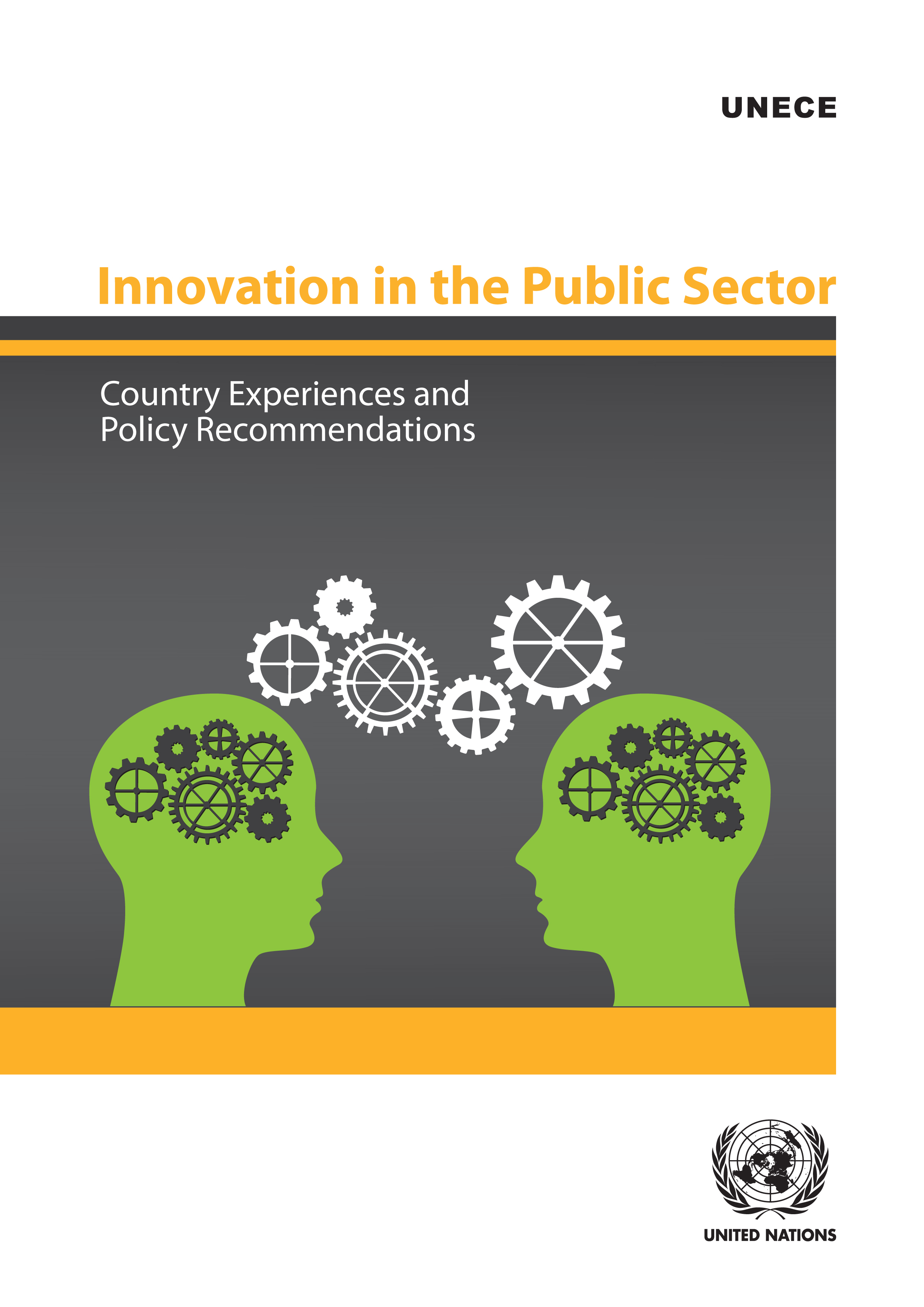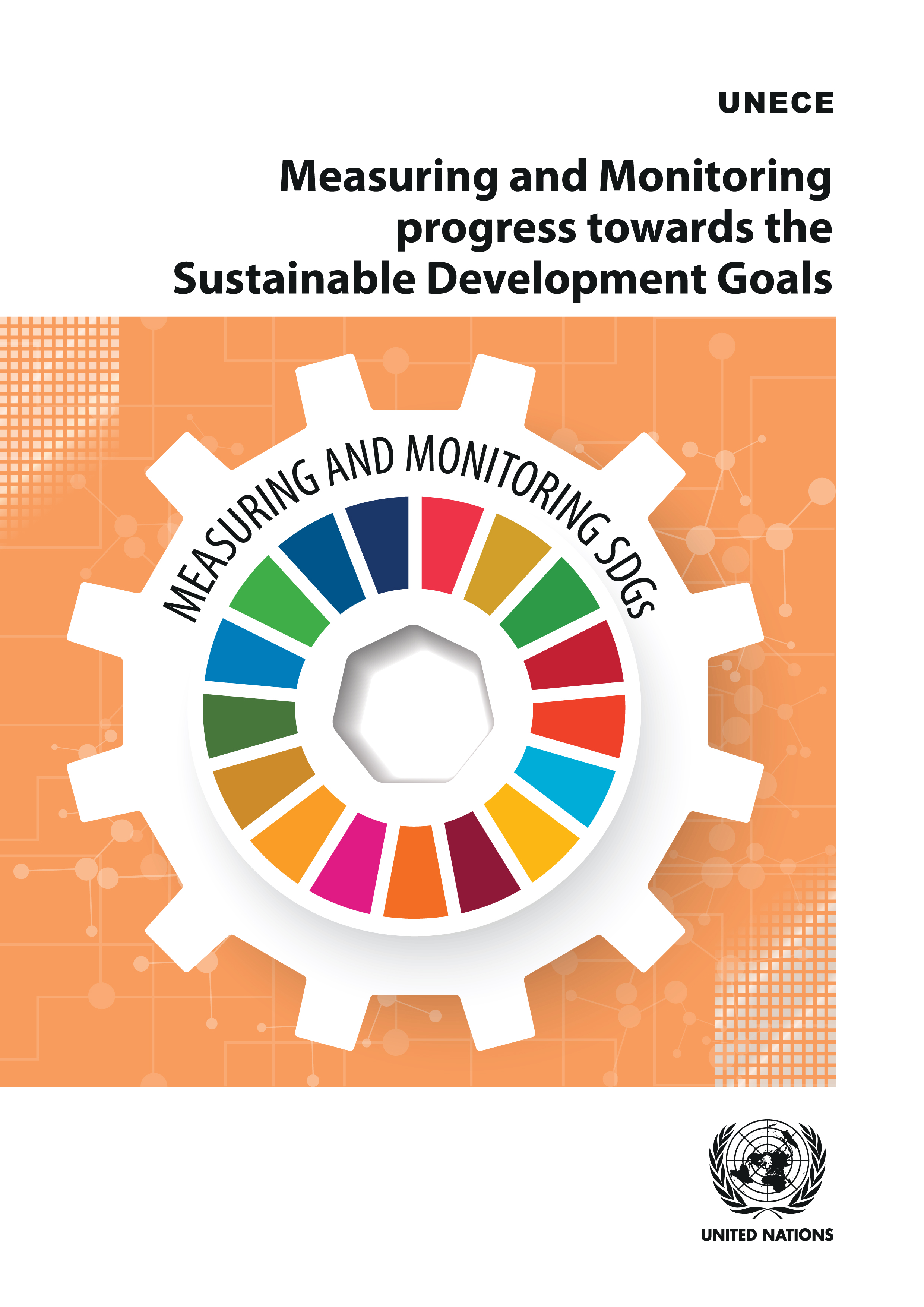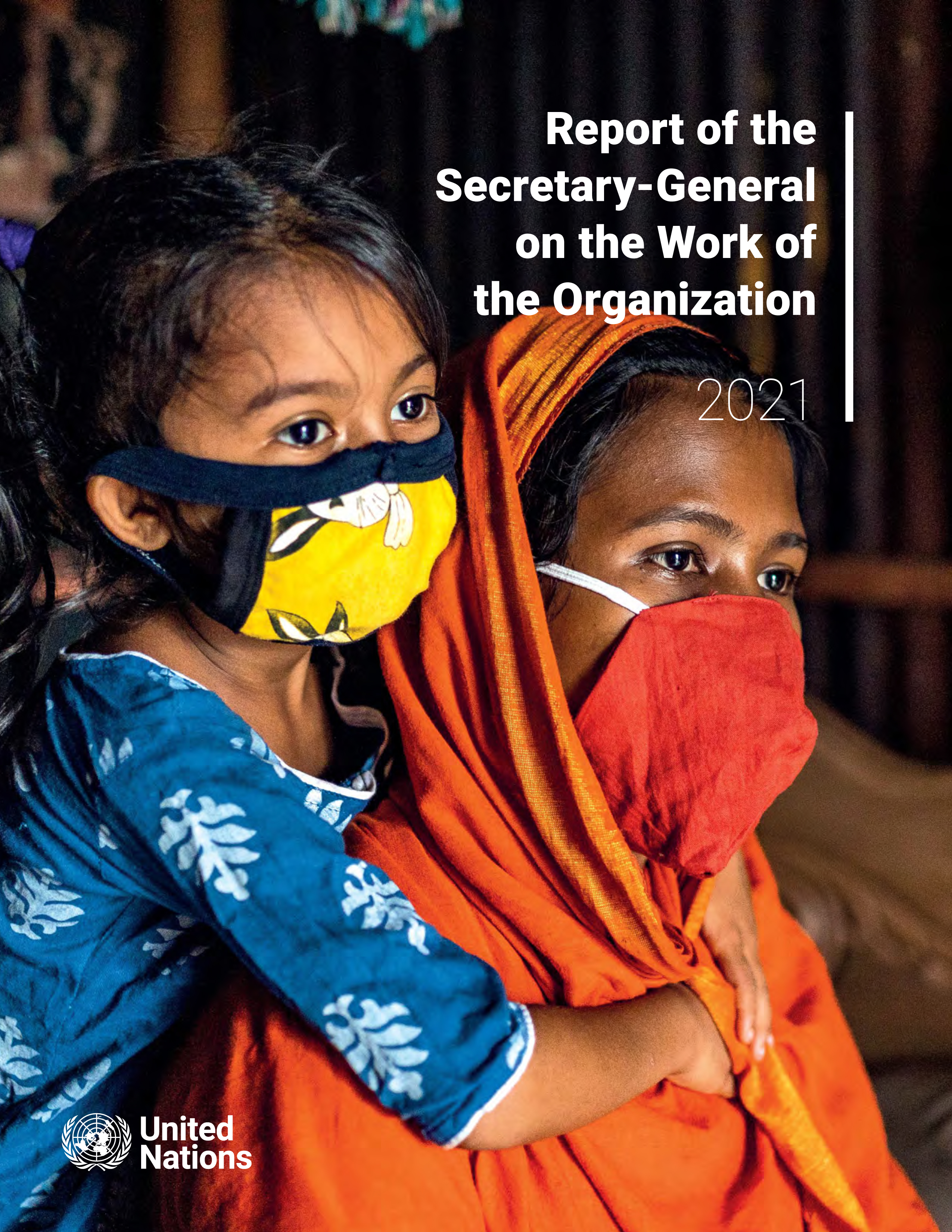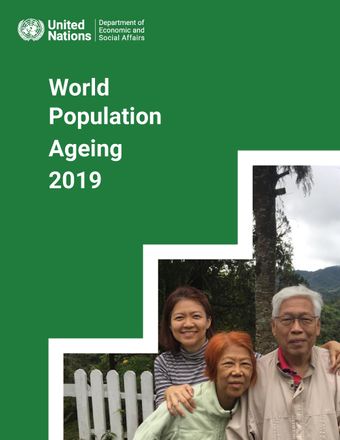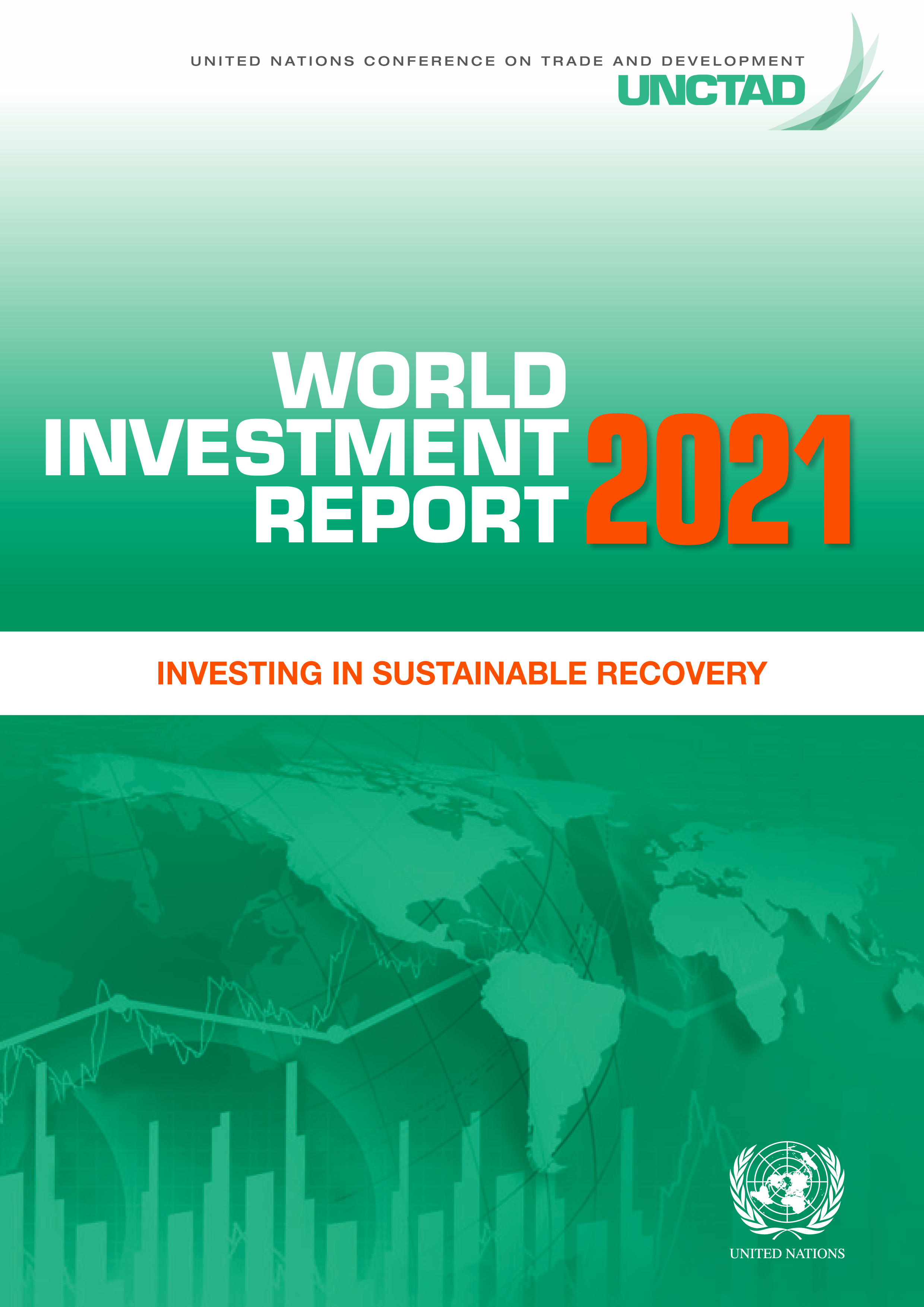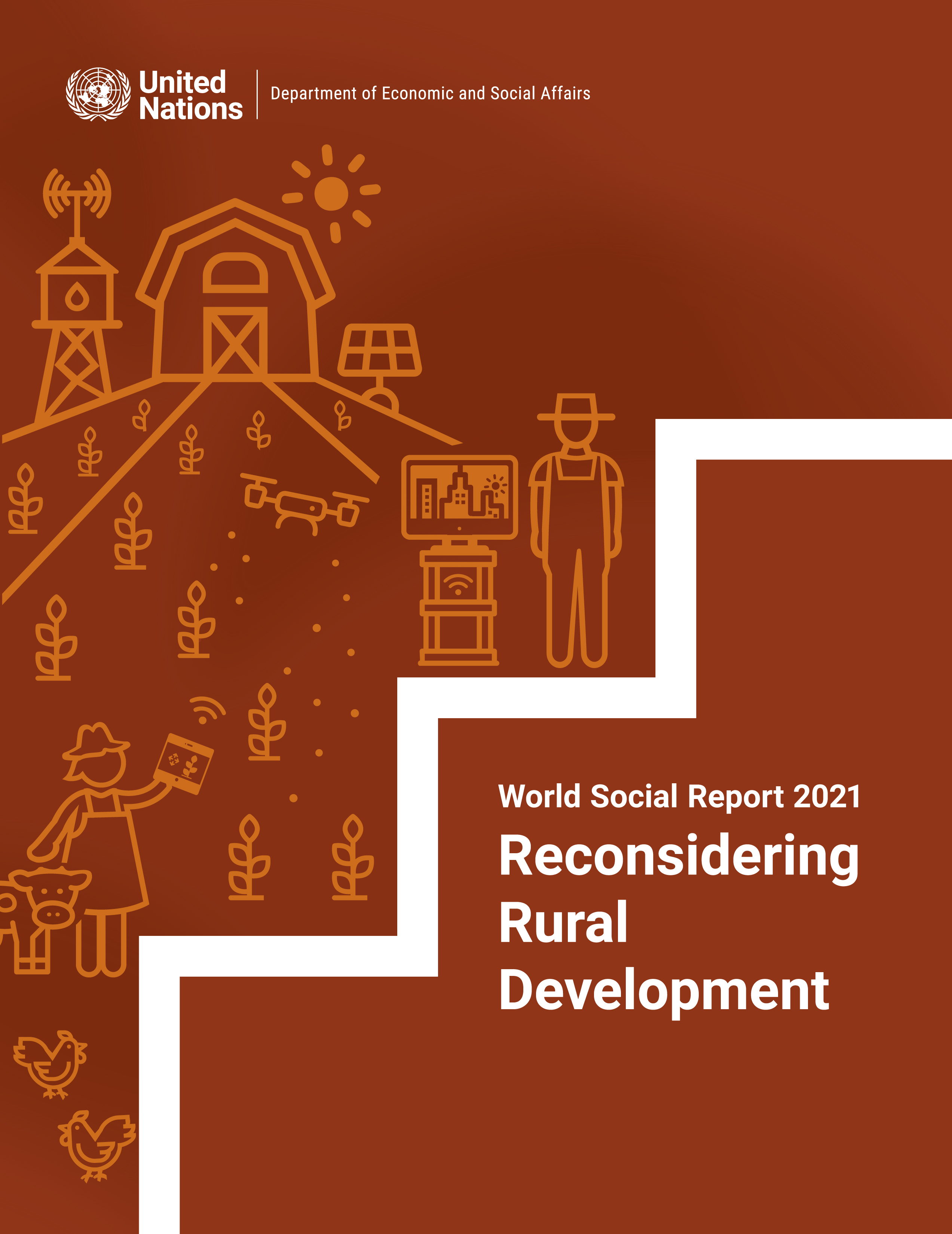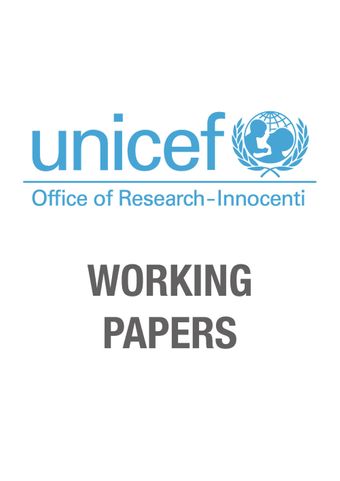YPP Social Affairs
.png)
Collection Contents
13 results
-
-
Placing Productive Capacities at the Heart of Least Developed Countries’ Development Policy and Strategy
UNCTAD Policy Brief No. 86
More LessThe coronavirus disease (COVID-19) pandemic has brought to light not only the systemic interdependence of countries, but also the socioeconomic fragility of the global economy. From a trade and development perspective, this has been felt most acutely in the most vulnerable developing countries – the least developed countries (LDCs). Even prior to the onslaught of the COVID-19 pandemic, LDCs faced complex development challenges, compounded with economic growth patterns that have failed to translate into accelerated poverty reduction and job creation. As the international community prepares for the upcoming fifteenth session of the United Nations Conference on Trade and Development (UNCTAD XV) and the Fifth United Nations Conference on the Least Developed Countries (UNLDC V), innovative strategies and approaches to enhance economic growth and address underlying vulnerabilities are urgently needed. This policy brief is a call to action for LDC Governments and the broader international community of development partners to take concerted action in the fostering of productive capacities for sustainable development.
-
-
-
Social Policy and Social Protection Measures to Build Africa Better Post-COVID-19
More LessThis policy brief reviews the socio-economic impacts of the COVID-19 crisis in Africa and presents the continent’s social protection responses. The crisis has hit the poorest and most vulnerable hardest and laid bare structural shortcomings such as inadequate health, educational and technological infrastructure, limited social protection, gender inequality, large informal economies, lack of access to basic services, constrained fiscal policy space and a high risk of debt distress in many countries, making them particularly vulnerable to the lasting effects of the pandemic. African countries have realized the need to scale-up social protection programmes and measures to meet the challenges brought about by the COVID-19 crisis as well as to ensure preparedness for other unexpected future events. Thus, they have introduced or adapted over 200 social protection and labour market policies in response to the pandemic. Recognizing the ongoing efforts as well as the persistent gaps and challenges, the brief stresses the need for allocating adequate resources for social protection systems and programmes, aiming for universal coverage to adequately address the different risks and vulnerabilities that individuals face throughout the lifecycle. It also urges development partners to provide financing support to the poorest countries to help them create fiscal space for increased public spending for social protection that is sustainable and equitable through multilateral development co-operation as well as national and regional multi-sectoral partnerships.
-
-
-
Compendium of Digital Government Initiatives in Response to the COVID-19 Pandemic: 2020
More LessThroughout the COVID-19 pandemic, digital technologies have allowed for continued connectivity and delivery of services online. Policy makers have mobilized public-private partnerships to design new services and apps as part of the crisis response, some going beyond information-sharing to deliver essential services to those most in need. This Compendium captures emerging trends in digital responses of UN Member States to the COVID-19 pandemic and provides a preliminary analysis of the main features of such responses. It demonstrates how governments have sought to ensure e-participation, facilitate E-health and E-business, support working and learning from home, and initiate contact tracing. As policy makers respond to increased expectations of e-services in the post-pandemic era, this Compendium may offer inspiration for innovative digital technologies that can help achieve development objectives. The inclusion of any technology or platform in this publication does not represent an endorsement from the United Nations. Cases shared are intended for the exchange of information so that Member States can learn from each other and possibly create new partnerships.
-
-
-
Development Policy and Multilateralism after COVID-19
Committee for Development Policy (CDP) - Policy Note
More LessAuthor: United NationsThis Policy Note assembles analysis by members of the UN Committee for Development Policy and their co-authors on different angles of the COVID-19 (coronavirus) crisis and the challenges and opportunities it presents for development policy and multilateralism. The document addresses, among other issues: new ways of designing the relationship between governments and private actors that puts public interest at the center; principles and concrete ideas for a multilateral response to COVID-19 as well as for a new multilateralism going forward; and how to respond to COVID-19 in a context of severe inequalities, including gender-based inequalities.
-
-
-
International Migration Report 2019
More LessMigration has major impacts on both the people and the places involved. When supported by appropriate policies, migration can contribute to inclusive and sustainable development in both origin and destination countries, while also benefiting migrants and their families. The International Migration 2019 analyses global and regional levels and trends in international migration, based on the latest estimates of international migrant stock, and investigates the contribution of migration to demographic change. The highlights also discusses international migration policies and provides an overview of normative and legal frameworks on international migration and refugees.
-
-
-
Innovation in the Public Sector
Country Experiences and Policy Recommendations
More LessThe public sector plays a very significant role in modern economies. As in the business sector, innovation can be a major source of productivity growth, cost savings and improvements in service quality in the public sector, benefits which then also positively affect businesses and citizens who rely on an efficient and effective public sector. The ability of the public sector to innovate is therefore increasingly seen as a critical element of economy-wide innovation performance. This publication covers a wide range of issues related to the promotion of innovation in the public sectors as well as policy lessons learned in this area drawing on the experiences of different countries.
-
-
-
Measuring and Monitoring Progress Towards the Sustainable Development Goals
More LessIn order to better support Member States in achieving the Sustainable Development Goals (SDGs), the United Nations Economic Commission for Europe (UNECE) identified four areas where its programmes and expertise converge. These “nexus” areas are sustainable use of natural resources; sustainable and smart cities for all ages; sustainable mobility and smart connectivity; and measuring and monitoring progress towards the SDGs. This publication supports efforts within the fourth nexus area, measuring and monitoring progress towards the SDGs. The focus is on the challenges faced by countries in the UNECE region.
-
-
-
Report of the Secretary-General on the Work of the Organization 2021
More LessAuthor: United NationsThis report is issued in response to Article 98 of the UN Charter, which mandates the Secretary-General to provide an annual report to the General Assembly on the work of the Organization. The Report covers nine sections: (i) promotion of sustained economic growth and sustainable development; (ii) maintenance of international peace and security; (iii) development in Africa; (iv) promotion of human rights; (v) effective coordination of humanitarian assistance; (vi) promotion of justice and international law; (vii) disarmament; (viii) drug control, crime prevention and combating international terrorism; and (ix) effective functioning of the Organization. In particular the report highlights how the UN Secretariat translates resources into impact across priority areas. The e-book for this publication has been converted into an accessible format for the visually impaired and people with print reading disabilities. It is fully compatible with leading screen-reader technologies such as JAWS and NVDA.
-
-
-
World Population Ageing 2019
More LessDrawing on the 2019 revision of World Population Prospects, the World Population Ageing 2019 (Highlights) documents global and regional trends in population ageing, including consideration of the implications of these trends for the implementation of the 2030 Agenda. The report also presents various concepts and indicators related to population ageing and discusses related fiscal and economic implications.
-
-
-
World Investment Report 2021
Investing in Sustainable Recovery
More LessThis report examines how foreign direct investment (FDI) can support sustainable post-pandemic recovery, drawing lessons from the impact of past global crises on FDI and the response of multinational enterprises and international investors that are still relevant today. It further identifies priority areas for investment in sustainable recovery, focusing on boosting growth and development and on increasing economic, social and supply chain resilience. Finally, it discusses the potential impact of rescue and recovery packages that are being adopted around the world on global investment trends, and especially on international project finance in infrastructure, renewables and digital development.
-
-
-
World Public Sector Report 2021
National Institutional Arrangements for Implementation of the Sustainable Development Goals – A Five-year Stocktaking
More LessFive years after the start of the implementation of the 2030 Agenda for Sustainable Development and its Sustainable Development Goals (SDGs), governance issues remain at the forefront. The COVID-19 pandemic has highlighted even more the importance of national institutions for the achievement of the SDGs. The World Public Sector Report 2021 focuses on three dimensions of institutional change at the national level. First, it documents changes in institutional arrangements for SDG implementation since 2015. Second, it assesses the development, performance, strengths and weaknesses of follow-up and review systems for the SDGs. Third, it examines efforts made by governments and other stakeholders to enhance the capacity of public servants to implement the SDGs. Based on in-depth examination of institutional arrangements for SDG implementation in a sample of 24 countries in all regions, the report aims to draw attention to the institutional dimension of SDG implementation and provide lessons for national policymakers in this regard. The report also takes stock of the impacts of the COVID-19 pandemic on national institutions and their implications for delivering on the 2030 Agenda. The e-book for this publication has been converted into an accessible format for the visually impaired and people with print reading disabilities. It is fully compatible with leading screen-reader technologies such as JAWS and NVDA.
-
-
-
World Social Report 2021
Reconsidering Rural Development
More LessThe World Social Report 2021 points to new directions in which rural development strategies need to be reconsidered. It offers certain strategic principles, programmes of action, and a set of concrete policies that can be combined to devise effective strategies that can help to realize the potential of rural development and achieve the SDGs. WSR 2021 will reexamine the narrow view of rural development and expand the discussion to include the role of development in achieving the wider set of SDGs. In doing the latter, it intends to pay particular attention to the interaction of rural development with SDG 6 (clean water and sanitation), SDG 8 (economic growth and decent work), SDG 9 (infrastructure), SDG 11 (sustainable communities), SDG 13 (climate change), SDG 14 (life below water) and SDG 15 (life on land). The interlinkages of all these Goals suggest that there exist potential synergies between rural development and sustainable efforts in many other directions.
-
-
-
A Rapid Review of Economic Policy and Social Protection Responses to Health and Economic Crises and their Effects on Children
Lessons for the COVID-19 Pandemic Response
More LessThis rapid review seeks to inform the initial and long-term public policy responses to the COVID-19 (coronavirus) pandemic, by assessing evidence on past economic policy and social protection responses to health and economic crises and their effects on children and families. The review focuses on virus outbreaks/emergencies, economic crises and natural disasters, which, like the COVID-19 pandemic, were 'rapid' in onset, had wide-ranging geographical reach, and resulted in disruption of social services and economic sectors, without affecting governance systems. Evidence is also drawn from the HIV/AIDS pandemic, due to its impacts on adult mortality rates and surviving children. The available evidence on the effects of economic policy and social protection responses is uneven across outcomes, regions, and type of policy response as a large body of literature focused on social assistance programmes. Future research on the COVID-19 pandemic can prioritize the voices of children and the marginalized, assess the effects of expansionary and austerity measures, examine the role of design and implementation, social care services, pre-existing macro-level health, demographic and health conditions and the diverse regional health and economic impacts of the pandemic. The paper also provides key lessons for public policy responses to the COVID-19 pandemic.
-

